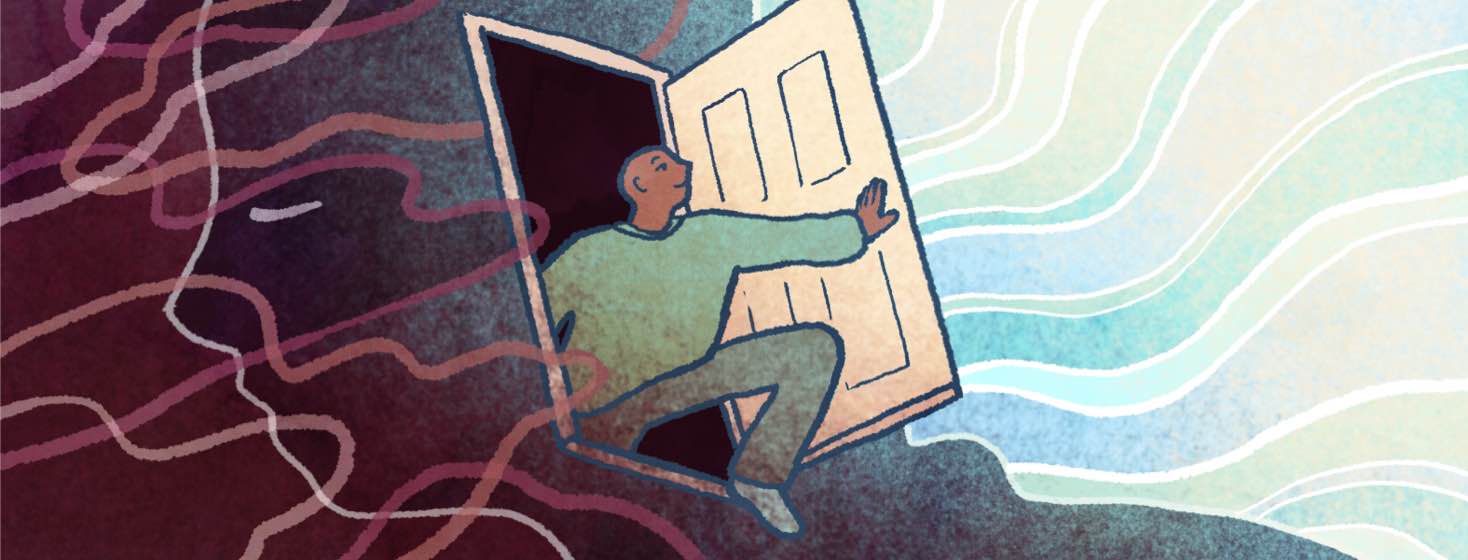Not Getting Trapped by Our Wounds
When we meet someone new, be it socially or for business, we often try to gain a better understanding about that person by trying to discover things we might have in common. As part of that getting-to-know-you process, we often ask about jobs, hobbies, or family. At some point we might bring up the topic of surviving a trauma. That conversation might be one involving someone else or perhaps ourselves.
As prostate cancer trauma survivors, I suspect many of us can easily identify with our emotional and/or physical wounds and the impact they have had on our lives.
Finding our identities
For the past several years I've been working with prostate cancer survivors and more recently lymphoma support groups and offering counseling to patients and partners. Over that time, I had surgery to remove my prostate and several years later underwent androgen deprivation therapy combined with 40 radiation treatments for my returning prostate cancer. Most recently I also had the opportunity to undergo and explore the "joys of chemotherapy” for non-Hodgkin’s lymphoma.
One of the things I found surprising about any cancer experience is that medicine plays only a small part in our conversations. Most of the conversation cancer patients have is really about feelings -- such as losing faith, finding a new identity, and discovering new strengths and flexibilities you never knew you had. Over time, cancer patients begin to realize that the most important things in life are not things but relationships.
Taking control over prostate cancer
For many of us, life is now about laughing in the face of uncertainty and finding out how we get the most out of sharing the fact that we have battled cancer. The big challenge now becomes, has cancer identified me, or am I taking control of the situation?
Prior to being told “you have cancer,” most of us do not want to think or talk about the subject. Once the cancer genie comes out of the bottle, a new door seems to magically open. Suddenly we feel freer about discussing the disease in the hope that others can learn from our experiences and take seriously the need for early prostate cancer screening.
I might also add that non-Hodgkin’s Lymphoma also shows few early warning signs and is typically discovered at Stage IV when it is more difficult to treat. I was lucky and got an early warning at Stage II.
As you undergo cancer treatment, it is so easy to let cancer take over your life. At one point in my life, it became important to say to myself, “I claimed this experience, but I will not let it claim me.”
Finding meaning in life
I believe the best way to cope with the trauma of cancer or any life-changing experience is to find some kind of “meaning.” Unfortunately, no one can tell us exactly what “meaning” implies for us. Rather, we must decide that one on our own in a quiet and private place. For me, that mind-clearing place is often found on a long walk with the dog or riding alone on one of the many local bike trails.
The best solutions come when I finally make a few small decisions that can bring about change. One of the most impactful things for me has been to reach out to other people and simply make new friends. It became important to start volunteering and going out for quiet walks. I also discovered that going to church helped if I wanted to be around caring people. It is amazing how several support groups can make a huge difference in your outlook.
For me, it was important to move beyond the cancer diagnosis and cancer treatment and let go of my survivor identity. Continuing to do so only made it easier to keep feeding my negative story.
Not being trapped by our wounds
I believe there comes a life-changing point in every cancer journey where you decide to let the “old story” go and embrace the new story of who you are today. While it is important to claim trauma as an experience, it is equally important not take it on as an identity. It does us no good to be trapped by our wounds.
My free advice, which is worth every penny, is to stop being a cancer survivor and start being the person you are today – alive, vibrant, and on a new journey of discovery.

Join the conversation